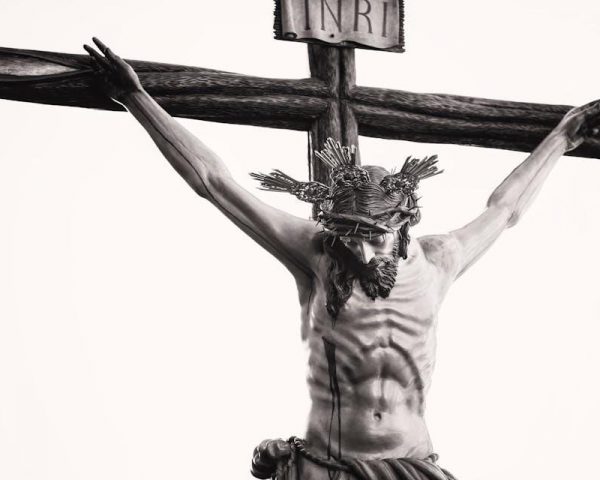Elie Wiesel’s Night is a harrowing memoir detailing his Holocaust experiences․ Themes of loss and survival are central, and its PDF form ensures global accessibility and Holocaust education․
1․1 Brief Summary of the Book
Night by Elie Wiesel is a concise yet powerful memoir recounting the author’s harrowing experiences during the Holocaust․ The book chronicles Eliezer’s journey from his hometown of Sighet to the horrors of Auschwitz and Buchenwald․ It captures the brutality of Nazi concentration camps, the loss of innocence, and the struggle to maintain faith amidst unimaginable suffering․ The narrative is deeply personal, offering a vivid account of the emotional and physical atrocities endured․ With its stark prose, Night is a haunting yet essential read, providing a firsthand perspective on one of history’s darkest chapters․ Its brevity amplifies its impact, making it a pivotal work in Holocaust literature․
1․2 Historical Context of the Holocaust
The Holocaust, a systematic genocide carried out by the Nazis, targeted six million Jews during World War II․ Elie Wiesel’s Night offers a firsthand account of this atrocity, detailing the horrors of concentration camps like Auschwitz and Buchenwald․ The Holocaust was marked by forced deportations, mass executions, and unimaginable suffering, erasing entire communities․ Wiesel’s memoir captures the brutality and dehumanization, providing a poignant reminder of history’s darkest chapter․ The PDF version of Night ensures this vital testimony remains accessible, educating future generations about the Holocaust’s significance and the importance of remembrance․
Author Background
Elie Wiesel, a Nobel Peace Prize laureate and Holocaust survivor, authored Night, reflecting his traumatic experiences․ His work emphasizes humanity’s resilience and the Holocaust’s profound impact․
2․1 Elie Wiesel’s Early Life and Experiences
Elie Wiesel was born in Sighet, Romania, in 1928․ His early life was marked by a devout Jewish upbringing, with a deep connection to faith and tradition․ This foundation was shattered when, at the age of 15, he and his family were deported to Auschwitz during the Holocaust․ Wiesel’s experiences in the concentration camps, including the loss of his parents and younger sister, profoundly shaped his perspective and writing․ These events are vividly recounted in Night, offering a personal and harrowing account of survival and loss․
2․2 Wiesel’s Nobel Peace Prize and Legacy
Elie Wiesel was awarded the Nobel Peace Prize in 1986 for his tireless advocacy for peace, justice, and human rights․ His memoir Night became a cornerstone of Holocaust literature, shedding light on the atrocities of the Holocaust․ Wiesel’s legacy extends beyond his writing; he dedicated his life to educating future generations about the Holocaust and combating hatred․ The availability of Night as a PDF has ensured its accessibility, allowing readers worldwide to engage with his powerful narrative․ Wiesel’s impact endures through his advocacy and the profound influence of his work on Holocaust education and global consciousness․
The Autobiographical Narrative

Elie Wiesel’s Night is a harrowing autobiographical account of his Holocaust experiences, recounting his journey through Auschwitz and Buchenwald with profound emotional depth․
3․1 Eliezer’s Journey Through the Holocaust
Eliezer’s journey in Night begins with his deportation from Sighet to Auschwitz, marking the end of his innocence․ The narrative vividly captures his struggles in concentration camps, where he witnesses unimaginable horrors․ Separated from his mother and sisters, Eliezer clings to his father, their bond tested by extreme hardship․ The memoir details his physical and emotional torment, including forced labor, starvation, and the psychological toll of dehumanization․ Key moments, such as the hanging of a young boy and the death march to Buchenwald, highlight his descent into despair․ Eliezer’s story is a poignant testament to survival amid unimaginable atrocity, exploring themes of faith, hope, and the human spirit’s resilience․ The PDF version of Night preserves the raw emotional power of his autobiographical account, ensuring its lessons endure for future generations․ The digital format makes this vital story accessible worldwide, allowing readers to reflect on the Holocaust’s atrocities and the importance of remembrance․ By reading Night in its PDF form, audiences can engage deeply with Eliezer’s journey, fostering a broader understanding of history’s darkest chapters․ The book remains a critical resource for Holocaust education, urging readers to confront the past and strive for a more compassionate world․ Eliezer’s narrative is a powerful reminder of the human cost of hatred and the enduring need for tolerance and peace․ Through his story, Wiesel’s legacy continues to inspire reflection, education, and advocacy against injustice․ The availability of Night in PDF ensures that Eliezer’s voice reaches new generations, preserving the memories of those who suffered and honoring their resilience․ Reading the digital version offers a convenient yet profound way to connect with this essential work, ensuring its impact endures․ The PDF format also allows for easy sharing and access, spreading the book’s vital message globally․ Eliezer’s journey, as chronicled in Night, serves as a timeless warning against indifference and a tribute to the strength of the human spirit․ The book’s digital accessibility ensures that its lessons remain relevant, guiding readers toward a future rooted in empathy and understanding․ Through his story, Wiesel reminds us of the importance of never forgetting the Holocaust’s atrocities, while inspiring hope for a more just world․ The PDF version of Night is a valuable tool for education and reflection, ensuring that Eliezer’s journey continues to resonate with readers worldwide․
3․2 Key Events and Turning Points in the Book
In Night, Eliezer experiences several pivotal moments that shape his understanding of humanity and faith․ His deportation to Auschwitz, where he is separated from his mother and sisters, marks the first turning point․ The horrors of the concentration camp, including the burning of children and the hanging of a young boy, deeply challenge his belief in God․ Another crucial event is the death of his father in Buchenwald, which leaves Eliezer emotionally shattered․ The death march and eventual liberation by American soldiers serve as the final turning point, highlighting the fragility of life and hope․ These events underscore the brutality of the Holocaust and its profound impact on Eliezer’s spirit․ The PDF version of Night captures these moments with stark clarity, ensuring readers confront the atrocities and reflect on their significance․ The digital format preserves the emotional weight of these events, making them accessible for global readers to engage with Eliezer’s harrowing journey․ Through these key moments, Wiesel’s memoir remains a powerful testament to resilience and the search for meaning in the face of unimaginable suffering․ The PDF version ensures that these turning points are remembered and studied, fostering a deeper understanding of the Holocaust’s legacy․ Eliezer’s story, as shared in Night, continues to resonate, urging readers to confront the darkness of history while clinging to hope․ The accessibility of the PDF format allows new generations to connect with these pivotal events, ensuring the lessons of the Holocaust endure․ Through Eliezer’s journey, Wiesel’s work remains a vital resource for education and reflection, emphasizing the importance of never forgetting․ The key events in Night are a haunting reminder of humanity’s capacity for both cruelty and survival, preserved in the PDF version for global access and reflection․ These moments are central to the book’s impact, offering a raw and unflinching look at the Holocaust’s atrocities and their lasting consequences․ The PDF format ensures that Eliezer’s story continues to educate and inspire, serving as a critical reminder of history’s darkest chapters․ By examining these turning points, readers gain a deeper understanding of the Holocaust’s horrors and the resilience of the human spirit․ The PDF version of Night is an essential tool for engaging with these events, ensuring that Eliezer’s voice and experiences are not forgotten․ Through these key moments, Wiesel’s memoir remains a powerful exploration of faith, loss, and survival, preserved in a format that guarantees its accessibility for future generations․ The events in Night are a poignant reminder of the Holocaust’s impact, and the PDF version ensures that these stories are shared and remembered worldwide․ Eliezer’s journey, as chronicled in Night, serves as a testament to the enduring strength of the human spirit, even in the face of unimaginable suffering․ The PDF version of the book makes this journey accessible to readers everywhere, ensuring that the lessons of the Holocaust are never forgotten․ Through these key events and turning points, Wiesel’s work continues to inspire reflection, education, and advocacy for a more compassionate world․ The PDF format guarantees that Eliezer’s story remains a vital part of Holocaust education, urging readers to confront the past and strive for a future rooted in empathy and understanding․ The key events in Night are a powerful reminder of the importance of remembrance and the need to learn from history’s darkest moments․ By reading the PDF version, readers can engage deeply with Eliezer’s journey, fostering a broader understanding of the Holocaust’s atrocities and their lasting impact․ The digital format ensures that these turning points are preserved for future generations, serving as a critical resource for education and reflection․ Through Eliezer’s story, Wiesel’s legacy continues to inspire hope and resilience, even in the face of unimaginable suffering․ The PDF version of Night is a vital tool for ensuring that these key events are never forgotten, allowing readers to connect with the Holocaust’s history in a meaningful and accessible way․ The book’s digital availability ensures that Eliezer’s voice reaches new audiences, preserving the memories of those who suffered and honoring their resilience․ Reading the PDF version of Night offers a profound way to engage with these turning points, ensuring that their lessons endure for generations to come․ The PDF format also allows for easy sharing and access, spreading the book’s vital message globally․ Eliezer’s journey, as chronicled in Night, serves as a timeless warning against indifference and a tribute to the strength of the human spirit․ The book’s digital accessibility ensures that its lessons remain relevant, guiding readers toward a future rooted in empathy and understanding․ Through his story, Wiesel reminds us of the importance of never forgetting the Holocaust’s atrocities, while inspiring hope for a more just world․ The PDF version of Night is a valuable tool for education and reflection, ensuring that Eliezer’s journey continues to resonate with readers worldwide․

Themes in “Night”
Loss of innocence, faith, and dehumanization are central themes․ The PDF highlights the struggle to maintain hope amidst atrocities, the erosion of humanity, and the darkness of existence․ Eliezer’s journey reflects the moral and spiritual decay of society, emphasizing survival and the questioning of divine justice․ The digital version underscores these themes, making them accessible for readers to confront the depths of human suffering and resilience․ The PDF format ensures these profound ideas reach a wider audience, fostering reflection on humanity’s capacity for both cruelty and endurance․

4․1 The Loss of Innocence and Hope
In Night, Elie Wiesel vividly portrays the devastating loss of innocence and hope experienced by Eliezer during the Holocaust․ The PDF version captures the harrowing journey of a young boy forced to confront unimaginable atrocities․ Initially, Eliezer and his family cling to hope, believing deportation will lead to a better life․ However, the brutal reality of Auschwitz shatters this optimism․ Witnessing the crematoria, mass executions, and daily suffering erodes his faith in humanity and God․ The death of his father marks the final blow to his innocence․ The PDF format preserves Wiesel’s poignant storytelling, ensuring readers grasp the profound emotional and psychological toll of these events․ This theme remains a powerful reminder of the Holocaust’s impact on the human spirit․
4․2 Faith and Religion in the Face of Atrocity
In the PDF version of Night, Elie Wiesel explores the profound crisis of faith that emerges during the Holocaust․ Eliezer, a deeply religious boy, struggles to reconcile his belief in a benevolent God with the unimaginable atrocities he witnesses․ The systematic dehumanization and mass murder challenge his faith, leading to a spiritual upheaval․ The hanging of a young boy in the camp becomes a pivotal moment, as Eliezer questions how God could allow such evil․ This internal conflict reflects the broader theological struggles of survivors and readers alike․ Wiesel’s narrative highlights the tension between faith and the reality of atrocity, leaving a lasting impact on how humanity grapples with suffering and divine justice․
4․3 Dehumanization and Survival
In the PDF of Night, Elie Wiesel vividly portrays the dehumanization of Holocaust victims, stripping them of identity, dignity, and hope․ The Nazis systematically reduced individuals to mere numbers, forcing them into a brutal struggle for survival․ Eliezer witnesses the erosion of moral boundaries, as prisoners resort to selfishness and cruelty to endure․ The loss of humanity is exemplified in the collapse of familial bonds and the prevalence of violence among victims․ Wiesel’s account underscores how survival often required sacrificing one’s humanity, leaving deep psychological scars․ This theme highlights the profound ethical and emotional toll of the Holocaust, resonating powerfully in the digital version of the text․

Symbolism in the Book
Night symbolizes darkness, fear, and the void of humanity, while fire represents destruction and the crematoria’s horrors, emphasizing the Holocaust’s unimaginable atrocities in the PDF version․
5․1 The Significance of Night as a Symbol
In Night, the title itself is a profound symbol, representing the darkness of humanity, the absence of divine presence, and the eternal void left by the Holocaust․ Recurring imagery of night underscores the emotional and psychological darkness experienced by victims, embodying hopelessness and terror․ The PDF version of the book highlights how night symbolizes the dehumanizing conditions of concentration camps, where the absence of light mirrors the loss of moral and spiritual guidance․ Wiesel’s use of night as a metaphor emphasizes the enduring trauma and the collapse of faith in a world that allowed such atrocities to occur under the cover of darkness․
5․2 The Role of Fire and Crematoria

Fire and crematoria in Night are potent symbols of destruction, horror, and the erasure of humanity․ The crematoria represent the industrial-scale genocide carried out during the Holocaust, where innocent lives were systematically reduced to ashes․ Fire, often associated with purification, is perverted here into an instrument of mass murder, highlighting the Nazis’ ruthless efficiency in annihilating millions․ The constant presence of flames and smoke serves as a grim reminder of the unimaginable atrocities occurring daily․ In the PDF version, Wiesel’s vivid descriptions of the crematoria evoke a sense of enduring terror and the irreversible loss of life, underscoring the Holocaust’s unimaginable brutality and its lasting impact on human history․

Literary Style and Structure
Elie Wiesel’s Night employs a direct, haunting narrative style, using simple yet powerful language to convey the atrocities of the Holocaust, with its structure amplifying the emotional depth․
6․1 Wiesel’s Use of Language and Tone
Elie Wiesel employs a sparse, haunting prose style in Night, mirroring the bleakness of life in concentration camps․ His language is direct and unadorned, reflecting the raw, emotional intensity of his experiences․ The tone is somber and reflective, yet deeply personal, creating an intimate connection with the reader․ Wiesel avoids melodrama, instead allowing the atrocities to speak for themselves through stark, vivid descriptions․ This understated approach amplifies the emotional weight of the narrative, making the horrors of the Holocaust feel both real and relatable․ His use of language underscores the moral and spiritual struggles, embedding a sense of gravitas and immediacy into the text․
6․2 The Impact of Autobiographical Writing
Elie Wiesel’s autobiographical approach in Night creates a profound emotional and historical connection with readers․ By recounting his personal experiences, Wiesel ensures the Holocaust’s atrocities are not reduced to statistics but remain deeply human․ The autobiographical format adds authenticity, making the narrative feel immediate and raw․ This approach allows readers to witness the Holocaust through the eyes of a survivor, fostering empathy and understanding․ Autobiographical writing also serves as a testament to history, preserving the voices of victims and ensuring their stories endure․ Wiesel’s direct, personal account has become a vital tool in Holocaust education, bridging the past with future generations․
Reception and Impact
Night has received widespread critical acclaim for its poignant portrayal of the Holocaust, becoming a cornerstone of Holocaust literature․ Its raw honesty has educated millions, fostering global empathy and understanding, while serving as a vital resource for historical reflection and education․
7․1 Critical Acclaim and Reviews

Elie Wiesel’s Night has garnered universal acclaim for its unflinching depiction of the Holocaust, earning it a reputation as a seminal work of 20th-century literature․ Critics praise its raw, haunting narrative, which captures the atrocities of the concentration camps with profound emotional depth․ The PDF version of Night has further amplified its reach, making Wiesel’s testimony accessible to a global audience․ Reviewers highlight its ability to educate readers about the Holocaust’s horrors while preserving the integrity of the original text․ The book’s digital format ensures its timeless message continues to resonate, fostering empathy and historical awareness among new generations of readers worldwide․
7․2 The Book’s Influence on Holocaust Education
Night by Elie Wiesel has become a cornerstone of Holocaust education, providing a personal and profound account of one of history’s darkest periods․ The PDF version of the book has made it easier for educators to incorporate Wiesel’s story into curricula worldwide․ Its accessibility has ensured that future generations can engage with the Holocaust’s realities, fostering empathy and understanding․ The book’s vivid narrative helps students connect emotionally with historical events, making it a vital tool for teaching tolerance and combating prejudice․ By sharing his experiences, Wiesel’s work continues to educate and inspire, ensuring the lessons of the Holocaust are never forgotten․

The PDF Version of “Night”
The Night PDF offers a convenient and accessible format for readers to engage with Elie Wiesel’s powerful memoir․ Its digital availability ensures the story’s enduring reach and impact․

8․1 Availability and Accessibility
The PDF version of Night by Elie Wiesel is widely available online, ensuring easy access for readers worldwide․ It can be downloaded from various platforms, including online bookstores like Amazon and Google Books, as well as educational websites․ Many libraries also offer digital copies through their e-book lending services, requiring only a membership․ The PDF format is compatible with multiple devices, such as tablets, e-readers, and smartphones, making it convenient for reading on the go․ Additionally, the digital version often includes features like adjustable fonts and night mode, enhancing readability․ This accessibility helps preserve the book’s legacy by reaching a broader audience, including students and researchers, while maintaining its emotional and historical impact․ The PDF’s availability also supports global Holocaust education initiatives, ensuring Wiesel’s story continues to educate future generations about the atrocities of the past․
8․2 Benefits of Reading the Digital Version
Reading the digital version of Night by Elie Wiesel offers several advantages․ The PDF format allows for easy portability, enabling readers to carry the book on multiple devices without additional space․ Adjustable font sizes and night mode features enhance readability, making it comfortable for extended periods․ Digital versions often include search functions, enabling quick access to specific passages or themes․ Annotations and bookmarks can be added effortlessly, facilitating deeper engagement and study․ Additionally, the digital format reduces physical storage needs, making it ideal for classrooms or personal libraries․ These benefits ensure a seamless and enriching reading experience while preserving the book’s powerful message and historical significance․
Night remains a vital testament to the Holocaust’s horrors, offering timeless lessons on humanity, faith, and resilience․ Its digital availability ensures its enduring reach and relevance․
9․1 The Lasting Importance of “Night”
Elie Wiesel’s Night remains a cornerstone of Holocaust literature, offering a raw, personal account of survival and suffering․ Its enduring importance lies in its ability to educate future generations about the atrocities of the Holocaust, fostering empathy and understanding․ The book’s unflinching portrayal of humanity’s darkest hour serves as a reminder of the consequences of hatred and indifference․ Night transcends time, ensuring that the voices of victims are never forgotten․ Its availability in PDF format has made it more accessible, allowing readers worldwide to engage with this vital historical narrative and reflect on its universal themes of hope, faith, and resilience․
9․2 Final Thoughts on the Book’s Relevance
Night by Elie Wiesel remains a timeless and hauntingly relevant work, offering profound insights into the human condition․ Its exploration of hope, faith, and survival continues to resonate with readers, making it a vital text for understanding the Holocaust’s impact․ The availability of the PDF version ensures that Wiesel’s story reaches a wider audience, preserving its legacy for future generations․ The book’s relevance extends beyond historical context, serving as a cautionary tale about the dangers of prejudice and indifference․ Its emotional and moral depth ensures that Night will remain a crucial work in fostering empathy and promoting tolerance in an ever-changing world․


